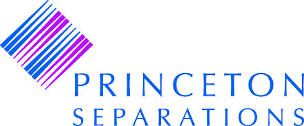PRINCETON SEPARATIONS STRENGTHENS ITS DISTRIBUTION NETWORK IN EUROPE THROUGH PARTNERSHIP WITH CLINISCIENCES

(Princeton, NJ – Monday, 4/29/2024)


(Princeton, NJ – Monday, 4/29/2024)

(Princeton, NJ – Friday, 1/19/2024)
Founded in 1984 as Princeton Separations, Inc (PSI), with a mission to provide highest-quality products for the biotechnology market, and reborn after Covid-19 as Princeton Separations Scientific LLC (PSS) we are celebrating our 40th anniversary.
We are a family-owned, manufacturing-based biotechnology company specializing in molecular separations serving the sample prep needs of the genomic and proteomic markets. We develop, manufacture and market DNA purification products widely used in research labs around the world for downstream applications such as sequencing and testing.
Princeton Separations, Inc (PSI), born in 1984 with a mission to provide highest-quality products for the biotechnology market, was reborn after Covid-19 as Princeton Separations Scientific LLC with a renewed energy and focus, but with the same high quality products our customers are used to for the last 40 years.
Covid-19 was a catalyst to reflect and refocus our company. We took a blank-page approach to resize our manufacturing footprint and our portfolio.
We are now located in Princeton Corporate Plaza, a biotech incubator with 250,000 sqf research lab space housing over 80 companies, near Princeton, New Jersey.
Princeton Corporate Plaza Laboratory Research Center is ideally situated in the biotech hub of New Jersey, on the Princeton-Rutgers Route 1 Corridor, known as “Einstein Alley.” For more information for Princeton Corporate Plaza please visit https://princetoncorporateplaza.com
We are excited to attend Association of Diagnostics & Laboratory Medicine (ADLM) 2024 congress in Chicago, July 28 - Aug 1, 2024 (formerly known as AACC Clinical Lab Expo). Come and meet us at Booth 2063!
For further information on ADLM, to learn about 900+ exhibitors and find solutions to lab-related needs, please visit https://meeting.myadlm.org
The ability to recover DNA fragments in high quantity and purity from agarose gel is an important need for researchers in molecular biology laboratories for downstream applications such as testing and sequencing. There are multiple established methods and corresponding commercial products available at researchers’ disposal. Despite the availability of many methods, researchers often face a trade-off decision between fast and simple methods with low yield and poor DNA quality, and time-consuming and expensive methods with higher yields and better purity.


